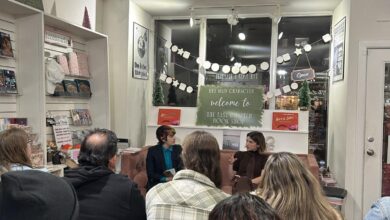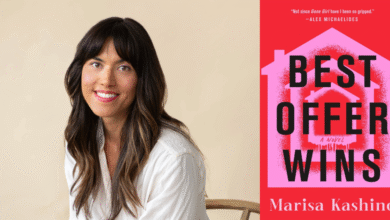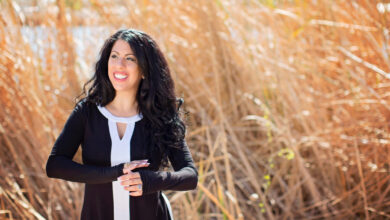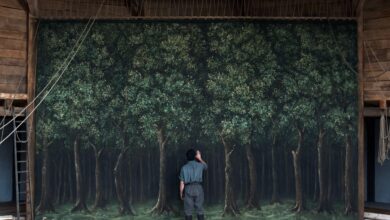‘Women of My Generation Were Sold a Bill of Goods’
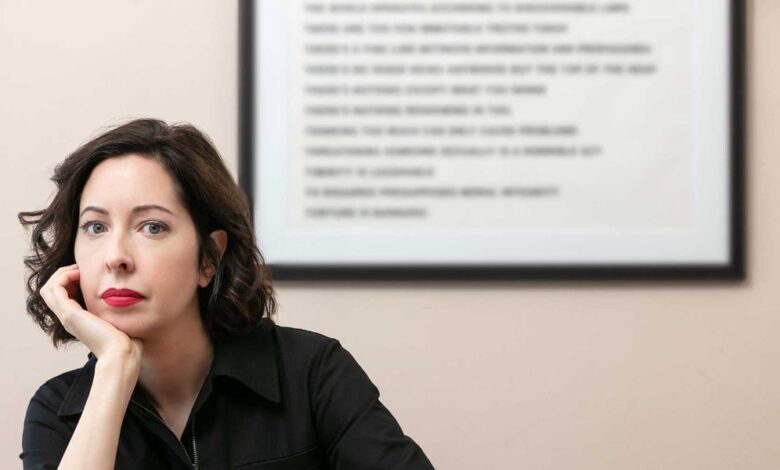
There is a generation of women, writer Sarah Manguso tells me, who went into their marriages to men believing a lie. This generation came of age after Roe v. Wade passed, riding the coattails of second-wave feminism. They believed that they were finally free from the confines of the home. They expected their husbands would share the burdens of child-rearing. They planned to pursue ambitious careers and vibrant creative lives. But reality held tighter to the past. Liars, Manguso’s ninth book and second novel, after 2022’s critically acclaimed Very Cold People, lays bare the myth of these heterosexual relationships through the fictional experience of Jane, whom readers follow through young adulthood into marriage and motherhood. Jane believes that her partnership with a progressive artist will disrupt what Manguso describes as the “man and wife paradigm”; instead, she becomes its victim.
This Q&A was adapted from the Alta Weekly Newsletter, delivered every Thursday. To keep reading, become an Alta Journal member for as little as $3 a month.
SIGN UP
Manguso and I spoke on Zoom ahead of Liar’s July 23 release. An author of poetry, nonfiction, and now fiction, Manguso grapples with themes such as illness and shame throughout her work. Post-divorce, she writes today from an entirely new place. “The women of my generation were sold a bill of goods for a new kind of heterosexual partnership that, for most of us, never really materialized,” she says. “Jane is absolutely of that generation.”
This interview has been edited for brevity and clarity.
Is Liars autofictional?
I was having a related conversation with my good friend, the Canadian writer Sheila Heti, who is often vaunted as one of the great contemporary practitioners of autofiction. She said to me, “People keep asking me what autofiction is or if something I’ve done is autofiction. It’s all autofiction.” You’re writing as your basic subject position in the universe, and that is it.
This is my ninth book, but it’s the first book I’ve written as a single woman. I’m open about the fact that I wrote this while I was undergoing a high-conflict divorce. Details certainly found their way in from my life. But I’m middle-aged. I’ve seen a lot. I’ve gone to a lot of weddings. I’ve seen a lot of divorces. I think these details find their way into fiction, no matter who is writing.
I am curious about writing as a single woman. How was that process different for you?
There’s a kind of internal ineffable freedom that I feel. And I’m both thrilled and disappointed to feel it because it indicates that I was missing a kind of freedom before. If you had asked me if I felt constrained as a writer before Liars, I would have said, No, I don’t feel constrained. I write about my life. I don’t feel that anything ought to be hidden or is too shameful.
But there really is a new level of freedom, I think, when a woman who was previously a wife is no longer a wife. That concept is something that Jane really grapples with.
It’s interesting that you were writing from a place of freedom because so much of the book feels very heavy. As Jane is coming to terms with the realities of her abusive marriage, you were writing from a place of feeling open for the first time.
I was feeling open as the person writing the book, but obviously, I was remembering. Once someone has emerged from something, it’s so easy to cast the eye retrospectively and understand that experience in a way that was just not available to you while you were in the midst of it. You know, William Wordsworth said that good poetry is “emotion recollected in tranquility.” Wait until you understand before you write.
At the same time, though, I really loved writing the second part of Liars. There’s this great caesura about two-thirds through, after which Jane is a different kind of person. She starts writing in a new way, and her ability to think chronologically and remember details is challenged by the immediate stressors in her life that become impossible to ignore.
Do you try to wait until you can write through recollection?
I’ve kept a daily diary for more than 30 years at this point, so no, absolutely not. But the one thing about my diary that I think might be slightly unusual is that I go back and I revise. I revise the prose, and I try to make the thinking more coherent.
Moving back to genre, you’ve progressed from writing primarily poetry to nonfiction and now fiction. Was that an active choice?
No, I don’t know what I’m doing next. I don’t know what I’m gonna write next month. I don’t know what I’m going to write later today. Sure, we use the word progress as just a way to describe the passage of time, but I really want to put a tiny bit of pressure on that word because I don’t see my career as progress.
Over the years, I’ve gotten better at shedding any kind of sense of obligation to do a certain kind of work. I follow my proclivities. I do what I want, which is really the great privilege of getting to be an artist.
In the landscape of domestic novels and divorce novels, which writers do you admire?
Charlotte Perkins Gilman wrote perhaps the urtext of the modern and contemporary “crazy wife and calm husband” paradigm, which I see Liarsbelonging to. That’s a domestic-abuse paradigm. Contemporary writers who are writing about this in a really intelligent and critical way include Myriam Gurba, Moira Donegan, Rachel Yoder, and Makenna Goodman.
People still seem to buy the husband’s story that perfectly sane women just go crazy out of nowhere. Liars gives that narrative back to the wife.•
Jessica Blough is a freelance writer. A former associate editor at Alta Journal, Blough is a graduate of Tufts University where she was editor in chief of the Tufts Daily.
Source link

